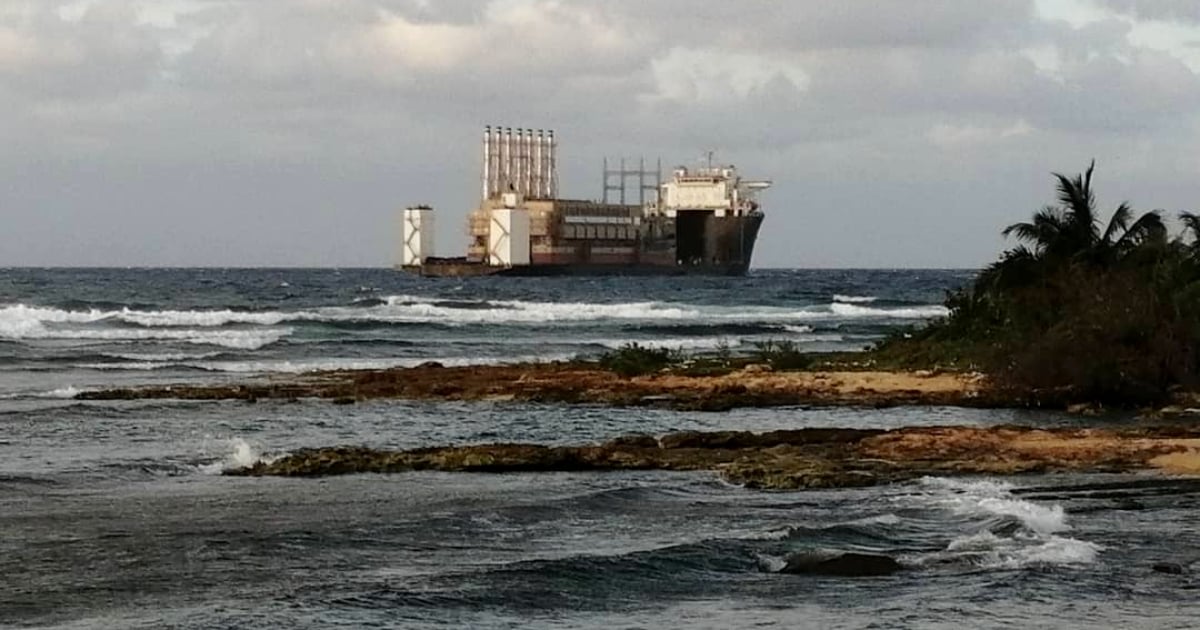The energy crisis in Cuba is worsening as reports surface about a fuel shortage impacting several of the country's floating power plants, often referred to as "Turkish floating power plants." This information was shared by state journalist Lázaro Manuel Alonso on social media, citing updates from the Cuban Electric Union (UNE). The shortage is affecting power plants docked in Havana, Mariel, and Santiago de Cuba.
According to Alonso, the floating plant in Mariel has run dry due to "issues with fuel supply." The vessel carrying the necessary fuel has been unable to dock because of adverse weather conditions linked to Hurricane Helene. "The ship has been unable to enter the port for two days due to the weather. It is expected to dock after noon today," Alonso reported on Saturday.
The floating power plant in Santiago de Cuba is completely inoperative due to a lack of fuel, acknowledged the state-run company led by Alfredo López Valdés. Similarly, the Turkish floating plant in Havana Bay has reduced its power generation for the same reason. The UNE has stated that "the fuel ship will arrive tomorrow to supply it."
This particular plant was also the site of a fire on Thursday that injured eight people during welding operations. Félix Estrada Rodríguez, the national dispatch director for UNE, assured that the fire was quickly contained and did not cause any damage to the plant's power generation capabilities. "The unit is fully operational with all four engines intact," Estrada Rodríguez told state television, without providing details on the injured individuals, including a Turkish national in critical condition.
Dark Days Ahead for Cuba's Power Grid
The already fragile National Electric System (SEN) is further collapsing with the disconnection of these floating power plants, leading to increased and prolonged blackouts for the population. On Friday night, the UNE reported a maximum disruption of 1,218 MW. By Saturday morning, more than 800 MW remained offline. Far from improving, the UNE anticipates that the outages will worsen, projecting an impact of over 900 MW by noon, Alonso noted. For peak hours tonight, the state company warns that "the estimated blackout is 1,221 MW."
In November 2021, Cuban authorities announced the arrival of a fourth Turkish floating power plant to join three others docked in Mariel Bay, operational since 2019 under an agreement between Cuba and the Turkish company Karadeniz Holding. Currently, after several relocations and the departure of some units, the exact number of operational floating power plants in Cuba remains unknown.
This is not the first time Turkish floating power plants in Cuba have faced fuel shortages. In April, the UNE reported fuel supply issues affecting the floating plants in Moa, Holguín, and Santiago de Cuba. In late August 2022, an anonymous source linked to the Business Administration Group S.A. (GAESA) told CiberCuba that the Cuban regime was paying for a new floating power plant by granting the management of Havana's shipyard to Karadeniz Holding for 25 years. "The Turks set the monthly lease at $260 million, and since there was no money to pay them, they were offered the shipyard concession," the source explained.
